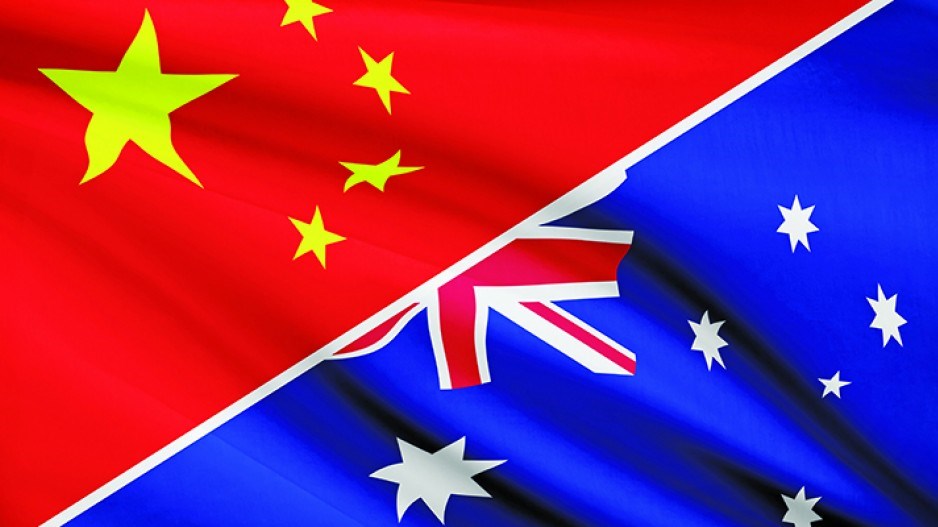China’s recent heavy-handed economic sanctions against Australia is a possible precursor for what kind of damage Beijing can deal in Canada’s direction if it chooses to, one B.C. scholar said.
Beijing has been outspoken in advising students and tourists to avoid travel and study in Australia due to a rise in alleged racist attacks and incidents, but most observers have linked the move to Canberra’s recent push for the an international investigation into the origins of COVID-19 in China and whether Beijing has been transparent enough with information surrounding the emergence of the novel coronavirus.
China, which makes up about a third of Australia’s export market, also banned Australian beef exports and raised tariff on barley, and that may be a warning sign for Canada – who itself has been in the midst of a diplomatic upheaval with Beijing stemming from the arrest of Huawei Technologies Co. Ltd. CFO Meng Wanzhou in Vancouver in 2018 on a U.S. extradition request.
“The only thing we can learn from the Australian story is that China will not hesitate to use whatever economic and political levers that it has to retaliate,” said Hugh Stephens, distinguished fellow at the Asia Pacific Foundation of Canada. “Does that mean that we don't stand our ground on key issues? No. But it also means that we don't needlessly antagonize China.”
Two Canadians, Michael Korvig and Michael Spavor, have been detained by China since Meng’s arrest.
Compared to Australia, China and Hong Kong accounts for only about 15.3% (close to $6.7 billion) of B.C.’s total exports as of 2019. However, it remains the province’s second-largest trade partner by a significant margin, with Japan at 10.5% and the United States (50.6%) as the only other markets with a double-digit percentage share.
Some observers have said Canada may incur the additional wrath of Beijing after Telus Corp. And Bell Canada rejected Huawei from their 5G networks, but Stephens said he does not think those punitive measures are coming based on the two companies’ decisions alone.
“China can hardly punish Canada because two private companies have made a decision not to go with Huawei for their 5G rollout,” he said. “It is hard to think of how they could ‘punish’ Bell and Telus... besides which these companies are currently good clients of Huawei, and Huawei will want to continue doing business with them in non-5G areas.”
Stephens also said he doubts that Canada will bar Huawei entirely from the market as Washington has done.
“I don't see that they [China] have an interest in exerting more pressure on Canada right now,” he said. “We have been mildly helpful on the COVID issue... They might have been disappointed that the BC Supreme Court did not throw out the extradition warrant for [Meng], but there is still much more ground to be covered in this case. I think it's wait-and-see for both sides with, unfortunately, the Michaels caught in limbo.”




